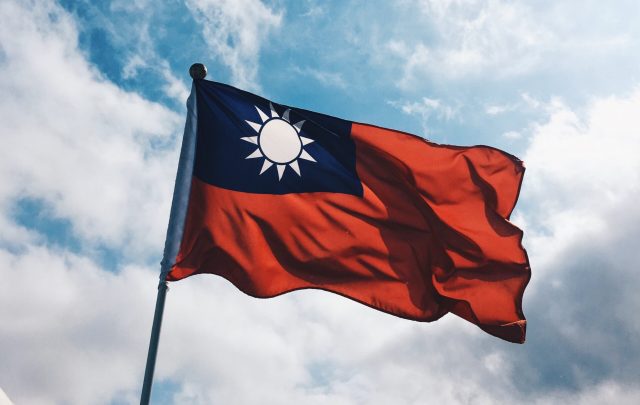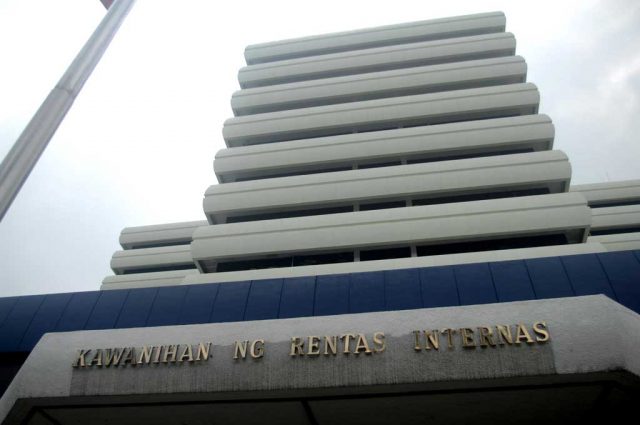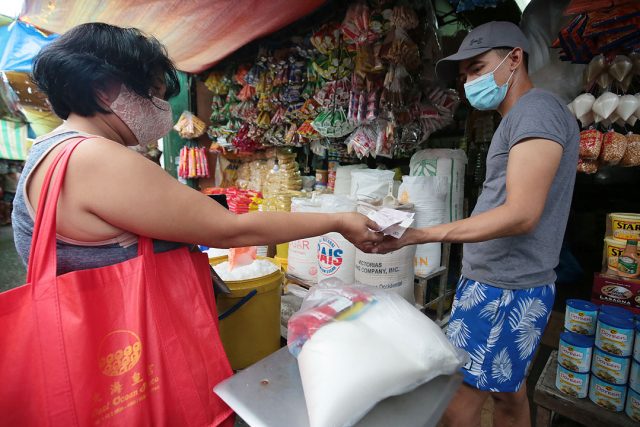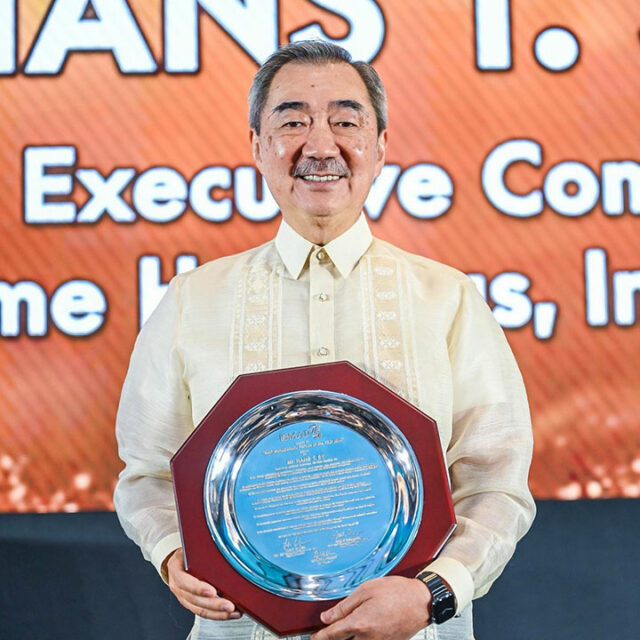S&P GLOBAL RATINGS and the ASEAN+3 Macroeconomic Research Office (AMRO) slashed its Philippine growth projections this year and in 2026, following the slower-than-expected growth in the third quarter.
In a report dated Nov. 23, S&P Global cut its Philippine gross domestic product (GDP) growth projection to 4.8% this year from its earlier projection of 5.6%, below the government’s 5.5-6.5% target. This is slightly higher than S&P’s projected 4.6% average growth for Asia-Pacific this year.
At the same time, AMRO in its latest Annual Consultation Report lowered its GDP growth forecast for the Philippines to 5.2% this year from 5.6% previously.
If S&P and AMRO’s forecasts materialize, the Philippine economy would grow much slower than the 5.7% in 2024.
“Third-quarter growth was much lower than the pace that the Philippines usually grows at, which naturally pulls down our forecast for the year overall,” Vincent Conti, senior lead economist at S&P Global Ratings, said in an e-mail.
In the third quarter, the Philippine economy expanded at its slowest pace in over four years at 4%, amid a slump in state spending and consumption due to the corruption scandal. This brought the nine-month GDP growth to 5%.
Allegations of widespread corruption in public works projects have sparked outrage and protests, and dampened investor and consumer confidence.
“Private investment and exports face headwinds from external uncertainties due to the US tariff policy, while public investment will be dampened by the flood control project controversies,” AMRO said.
Mr. Conti also noted weaker public investment has dragged the country’s economic output this year.
“Investment, especially by the public sector, has been the main driver of the slowdown. This has also been spilling over into consumer confidence,” he said.
AMRO, however, said household consumption, which accounts for over 70% of the economy, is expected to grow steadily.
“The near-term macroeconomic and financial outlook remains stable, underpinned by firm domestic demand and solid financial soundness indicators,” it said.
For 2026, S&P trimmed its Philippine growth forecast to 5.7% from 5.8% previously. AMRO also cut its Philippine GDP growth projection to 5.3% from 5.5% previously.
Their projections are below the 6-7% goal set by the government.
However, AMRO warned that the impact of US tariffs on Philippine goods exports is projected to be more “pronounced” in 2026. It noted that export orders that were front-loaded in 2025 are likely to partly offset the blow, but while the adverse effects on investment and trade will gradually fade by the second half of 2026.
The US has slapped a 19% reciprocal tariff on most goods from the Philippines since Aug. 7. However, most agricultural goods, including coconuts, pineapples, mangoes, guavas, and frozen tuna fillets, are now exempt from the reciprocal tariff.
“Downside risks stem from aggressive US protectionism, tighter immigration policies for migrant workers, slower growth in key trading partners, more volatile global financial conditions, and potential inflationary pressures,” it said.
It also flagged structural headwinds such as lingering scars from the pandemic, inadequate infrastructure, and weak manufacturing capacity.
AMRO also said a sharp slowdown in major trading partners could further weigh on the country’s economic growth outlook.
The regional think tank said it expects the Philippine economy to grow above 5% in the medium term, although still slower than the pre-pandemic period. It sees GDP expanding by 6.2% in 2027 and 2028, before easing to 6% growth in 2029.
RATE CUTS
Meanwhile, S&P said it expects the Bangko Sentral ng Pilipinas (BSP) to lower borrowing costs by 25 basis points (bps) to 4.5% by yearend, before cutting further by 50 bps to a terminal rate of 4% in 2026.
BSP Governor Eli M. Remolona, Jr. earlier said a 25-bp reduction at the Monetary Board’s last meeting this year on Dec. 11 is “possible,” but ruled out potential large cuts.
The BSP has cut rates by a total of 175 bps since it began its easing cycle in August 2024, bringing its benchmark interest rate to a three-year low of 4.75%.
It delivered a surprise cut in October amid concerns over the impact of the widening flood control fiasco on business sentiment and the country’s economic growth.
Also, S&P noted that benign inflation provides central banks in the region with some room to ease, although now limited as interest rates are nearing S&P’s projected neutral rates.
“We see little scope for further cuts, chiefly because policy rates have for the most part already descended close to our estimates of neutral policy interest rates,” S&P said.
S&P sees Philippine inflation averaging 1.7% this year, matching the BSP’s forecast. It also projects Philippine inflation to quicken to 2.7% next year and to 3% in 2027.
AMRO also trimmed its inflation forecast for the Philippines to 1.7% from 1.8% for 2025. It kept its projection for 2026 at 3.2%, slightly above the central bank’s revised 3.1% target forecast for 2026.
“The relatively low headline inflation reflects softer supply-side pressures, such as moderating food and global commodity prices, as well as the sustained effects of administrative measures, including tariff cuts on rice and the streamlining of nontariff barriers,” AMRO said.
“Risks to the inflation outlook are tilted to the upside, with potential renewed price pressures that could further diminish growth prospects,” it added.
AMRO said muted inflation has opened space for a “gradual normalization” of the BSP’s policy stance, to support economic growth amid heightened external uncertainties. It described the BSP’s current monetary policy stance as “tight,” with the real policy rate elevated at 3.05%, close to its recent peak and above the historical average.
“Such normalization would enhance policy flexibility for future rate hikes if inflation risks reemerge, while improving private investment sentiment to support economic growth in an uncertain external environment,” it said.
AMRO also called for enhanced monetary policy transmission to boost growth.
“Policy recommendations include deepening liquidity and broadening the investor base in long-term bond markets, as well as enhancing interest rate pass-through, particularly for consumer and SME (small- and medium-sized enterprise) lending, by promoting broader use of shared credit data,” it said.
Forward‑looking risk management is important to safeguard financial stability, AMRO added, noting rapid household loan growth, vulnerable corporate segments, and rising securities exposure. — Katherine K. Chan and Aubrey Rose A. Inosante













